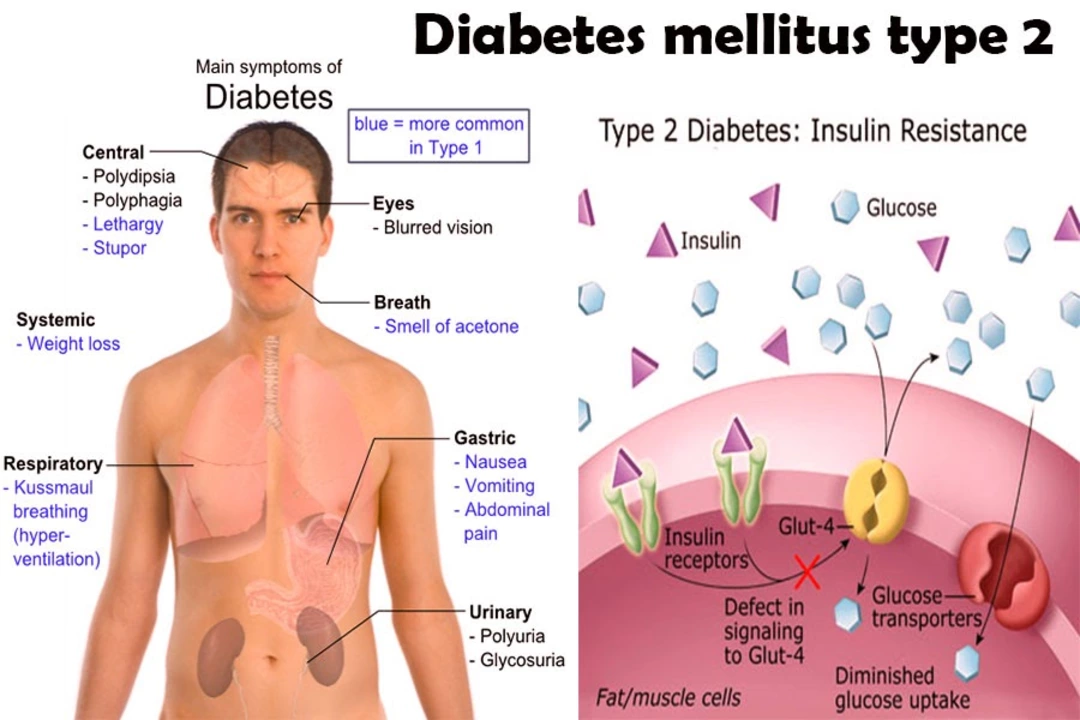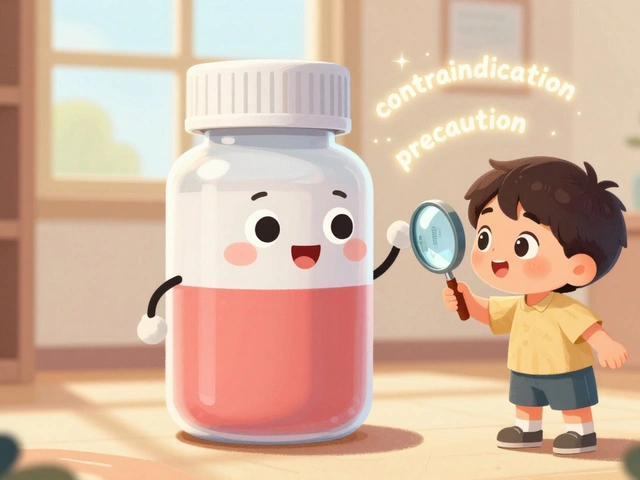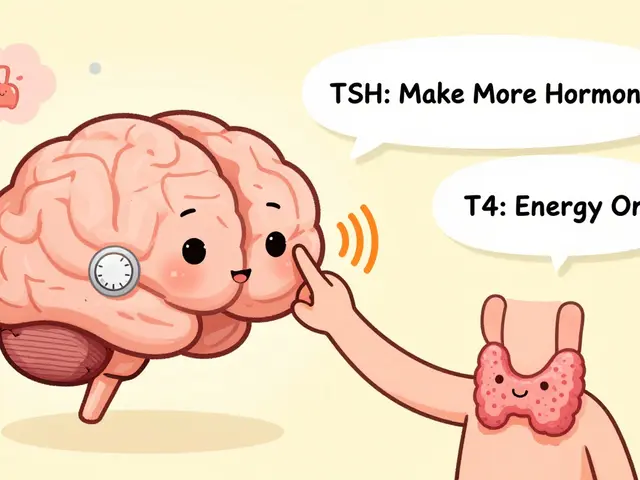Understanding Idiopathic Orthostatic Hypotension
Before diving into the link between idiopathic orthostatic hypotension and gastrointestinal disorders, it's essential to understand what idiopathic orthostatic hypotension is. As a condition, idiopathic orthostatic hypotension refers to a sudden drop in blood pressure when a person moves from a lying or sitting position to standing. This drop in blood pressure can lead to symptoms like dizziness, lightheadedness, and even fainting. The term "idiopathic" means that the cause of the condition is unknown. While there are many possible causes for orthostatic hypotension, in this article, we will focus on the potential link between this condition and gastrointestinal disorders.
Common Gastrointestinal Disorders and Symptoms
Gastrointestinal disorders encompass a wide range of conditions that affect the digestive system, which includes the esophagus, stomach, small intestine, and large intestine. Some common gastrointestinal disorders include irritable bowel syndrome (IBS), inflammatory bowel disease (IBD), gastroesophageal reflux disease (GERD), and gastroparesis. These conditions can cause various symptoms, such as abdominal pain, bloating, gas, diarrhea, constipation, heartburn, nausea, and vomiting. It is important to note that the symptoms and severity of gastrointestinal disorders can vary greatly from person to person.
How Gastrointestinal Disorders May Contribute to Idiopathic Orthostatic Hypotension
Researchers have been investigating the potential link between idiopathic orthostatic hypotension and gastrointestinal disorders. One possible explanation for this connection is that gastrointestinal disorders can lead to dehydration, a known risk factor for orthostatic hypotension. Dehydration can result from diarrhea, vomiting, or poor fluid intake, all of which can be symptoms or consequences of gastrointestinal disorders. Dehydration leads to a decrease in blood volume, making it more challenging for the body to maintain adequate blood pressure when changing positions.
Autonomic Dysfunction and Its Role
Another possible link between idiopathic orthostatic hypotension and gastrointestinal disorders is autonomic dysfunction. The autonomic nervous system is responsible for regulating essential bodily functions, including digestion, heart rate, and blood pressure. Dysfunction in this system can cause various symptoms, including orthostatic hypotension and gastrointestinal issues such as gastroparesis, constipation, or diarrhea. Conditions like diabetes, Parkinson's disease, and multiple system atrophy can cause autonomic dysfunction, leading to both orthostatic hypotension and gastrointestinal disorders.
Medications Used to Treat Gastrointestinal Disorders
Some medications used to treat gastrointestinal disorders may also contribute to the development of idiopathic orthostatic hypotension. For example, certain medications used to manage IBS or IBD, such as antispasmodics or antidiarrheals, can cause dehydration or electrolyte imbalances. These side effects can increase the risk of developing orthostatic hypotension. Additionally, some medications used to treat GERD, like proton pump inhibitors or H2 blockers, can interfere with the absorption of certain nutrients, such as vitamin B12 and magnesium. These nutrient deficiencies can potentially lead to orthostatic hypotension as well.
Managing Idiopathic Orthostatic Hypotension and Gastrointestinal Disorders
For individuals who experience both idiopathic orthostatic hypotension and gastrointestinal disorders, managing these conditions can be challenging. However, there are steps that can be taken to alleviate symptoms and improve quality of life. First and foremost, it is crucial to work closely with a healthcare provider to develop a comprehensive treatment plan. This plan may include medications, dietary modifications, and lifestyle changes. Staying well-hydrated and maintaining a balanced diet can help prevent dehydration and ensure the body has the necessary nutrients to function properly. Additionally, incorporating regular exercise and practicing good sleep hygiene can help improve overall health and potentially reduce the severity of both idiopathic orthostatic hypotension and gastrointestinal disorder symptoms.





14 Comments
Mayra Oto
When you think about orthostatic hypotension, the first thing that comes to mind is fluid balance – staying well‑hydrated is practically a non‑negotiable foundation. Pair that with a diet rich in electrolytes, and you’re already giving the autonomic system a fighting chance. It also helps to coordinate with a gastroenterologist; a combined care plan can catch dehydration early, especially for patients battling chronic diarrhea or gastroparesis. Small steps like sipping electrolyte drinks throughout the day and monitoring weight can make a huge difference in preventing those dizzy spells.
S. Davidson
Honestly, the link isn’t some mystical mystery – it’s basic physiology. Dehydration reduces intravascular volume, leading to insufficient venous return when standing, which directly triggers the orthostatic drop. Moreover, many IBS‑type meds have anticholinergic side‑effects that blunt baroreflexes. So before you start searching for exotic mechanisms, check the patient’s fluid intake, medication list, and baseline electrolytes.
Haley Porter
From a systems‑biology perspective, one might conceptualize the gut‑brain‑vascular axis as a triadic feedback loop where dysregulated enteric signaling perturbs autonomic set‑points. The resultant neuro‑humoral cascade, mediated by vasoactive peptides such as serotonin and vasoactive intestinal peptide, can attenuate baroreceptor sensitivity, thereby precipitating orthostatic hypotension. In essence, the gut is not merely a passive conduit but an active participant in hemodynamic homeostasis.
yash Soni
Wow, another article trying to reinvent the wheel-yeah, dehydration is a thing, and so are meds that mess with blood pressure. No need for a Nobel Prize, just basic common sense.
Emily Jozefowicz
Sure, it's fascinating how a simple glass of water can be a hero, but let’s not forget the irony that our “miracle” PPIs might be stealing the show by leaching magnesium and B12, silently nudging blood pressure down. It’s like giving the patient a gift-wrapped problem.
Sharath Babu Srinivas
Absolutely spot‑on! Keeping an eye on electrolyte levels is crucial – low magnesium can impair vascular tone. 🩺📊
Brandon Burt
Look, I get that the article tries to be thorough, but it reads like a textbook that never learned to breathe – endless paragraphs about dehydration, autonomic dysfunction, medication side‑effects, and then some vague advice about “working with a healthcare provider” that could have been summed up in a single sentence, honestly, it’s exhausting to wade through, and the lack of concrete dosage recommendations for electrolyte solutions leaves the reader hanging, hoping there’s a quick fix when really it’s all about consistent daily habits, not some miracle cure.
Gloria Reyes Najera
yeah its all good but idk why they keep shoving in fancy terms when simple water and diet fix most of it
Gauri Omar
Imagine the tormented soul who rises each morning, only to be betrayed by a sudden blackout because their gut has siphoned away every ounce of fluid – a drama worthy of Shakespeare, yet it’s a daily reality for many. The battlefield is internal, the casualties are vital signs, and the hero’s weapon is mindful nutrition and vigilant monitoring.
Willy garcia
Stay hydrated, buddy.
zaza oglu
Let’s celebrate the simple truth: water, balanced meals, and a dash of movement can turn the tide against those dizzy spells. 🌟💧 When you pair that with regular check‑ups, you’re basically giving your body a high‑five.
Lindy Swanson
Not to rain on the parade, but throwing “stay hydrated” at everyone feels a bit lazy – some folks need more tailored guidance than just a reminder to drink water.
Amit Kumar
Totally agree! 🙌 A personalized plan that includes electrolyte‑rich drinks, fiber‑filled meals, and gentle exercise can make a world of difference. Let’s keep cheering each other on! 💪😊
Mustapha Mustapha
I’m impressed by how many factors intertwine here. A balanced approach that respects both the gut and vascular system seems the most pragmatic path forward.